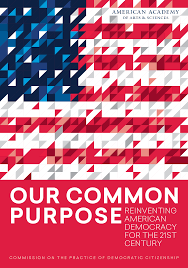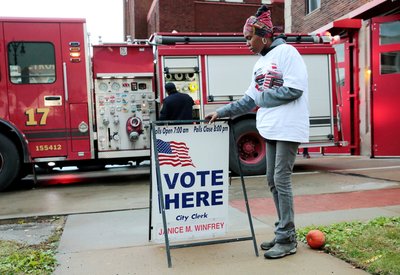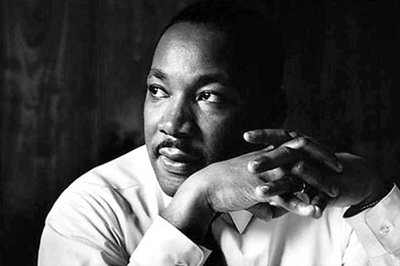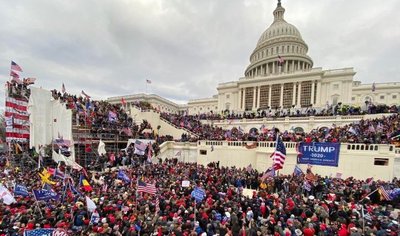For a Google doc version of this lesson, click here. You will be prompted to make a copy.
“That the people have an indubitable, unalienable and indefeasible right to reform or change their Government, whenever it be found adverse or inadequate to the purposes of its institution.” — James Madison, June 8, 1789
Overview

A recent study on the state of American democracy revealed unnerving results. Fewer than half of the Americans that participated in the study believe democracy is not working well.
However, finding solutions hasn’t been easy. Partisan politics, an apathetic citizenry and civic atrophy have presented additional challenges for revitalizing American democracy.
The purpose of this lesson is to introduce students to the evidence of the pessimism about American democracy and then spur a conversation around existing suggestions for revitalizing American democracy.
Subjects
Government, civics, U.S. history, social studies
Estimated time
One to two 50-minute class periods
Grade level
9-12
Objectives
- Students will be able to explain the issues and problems facing American democracy as recorded in a Pew Research study and the American Academy of Arts and Sciences report.
- Students will be able to assess the recommendations for reinventing American democracy from the American Academy of Arts and Sciences report and categorize the recommendations based on their support or opposition.
- Students will be able to construct arguments of support and opposition to recommendations for reinventing American democracy in a mock constitutional convention.
Materials
State of American democracy prediction quiz
America at a Crossroads video questions
Reinventing American democracy — preparing for a constitutional convention worksheet
Warm-up activity
Have students take the State of American democracy prediction quiz, which asks them to predict how participants in a Pew Research study answered each prompt. After revealing the correct answer, have a class discussion about what the poll reveals.
Main activity
- Topic introduction: Provide this question sheet to students and have them answer as they watch the PBS NewsHour segment America at a Crossroads and answer the following questions. The video features an interview by Judy Woodruff with Danielle Allen, Harvard political theorist who co-chaired the American Academy of Arts and Sciences bipartisan commission and produced the report Our Common Purpose.
Political theorist promotes 'Our Common Purpose' plan to reinvent American democracy
2. Evaluating recommendations to Reinvent American Democracy: Students are now aware of the dissatisfaction with the current state of American democracy.
- Place students into small groups and provide them with the Reinventing American democracy — Preparing for a constitutional convention worksheet so they can evaluate some of the recommendations from the American Academy of Arts and Sciences report on ways to reinvent American democracy.
- Students should evaluate the recommendations with a +, -, or ?, (+) if they support the recommendation, (-) if they oppose the recommendation, and (?) if they need more information to make an informed decision.
- Groups should also be able to provide reasoning for why they like or dislike a recommendation. Providing students with the report Our Common Purpose would be helpful if they want to understand the broader context behind the committee’s recommendations.
3. Class discussion: Once students have evaluated the recommendations, have them narrow down the recommendations to 2-3 that the group supports and 2-3 that the group opposes.
4. Class vote: Have each group nominate one of the recommendations for reinventing American democracy and one recommendation that they would like to block from adoption.
- When a majority of the class supports a recommendation, that is the winner. When a majority of the class opposes a recommendation, that is loser and would not be sent to states for ratification.
- Closing note: remind students that we as a nation may not be ready for a constitutional convention, but activities like this are meant to prepare us if one is ever called.
Extension activity
Have your students write letters to their U.S. Senators, members of the House of Representatives or state legislators to advocate for the recommendation(s) from the main activity about ways to reinvent American democracy.
Additional resources
- Our Common Purpose report
- NewsHour: Americans are widely pessimistic about the state of democracy in the U.S., AP-NORC poll finds
- Washington Post: American democracy is cracking. These forces help explain why.
- Pew Research: Americans’ Dismal Views of the Nation’s Politics
Standards
Common Core Standards
CCSS.ELA-LITERACY.RH.9-10.1; CCSS.ELA-LITERACY.RH.11-12.1; - Cite specific textual evidence to support analysis of primary and secondary sources...
CCSS.ELA-LITERACY.RH.9-10.8 - Assess the extent to which the reasoning and evidence in a text support the author's claims.
CCSS.ELA-LITERACY.RH.11-12.8 - Evaluate an author's premises, claims, and evidence by corroborating or challenging them with other information.
C3 Framework for Social Studies State Standards
D2.Civ.2.9-12. - Analyze the role of citizens in the U.S. political system, with attention to various theories of democracy, changes in Americans’ participation over time, and alternative models from other countries, past and present.
D2.Civ.4.9-12. - Explain how the U.S. Constitution establishes a system of government that has powers, responsibilities, and limits that have changed over time and that are still contested.
D2.Civ.7.9-12. - Apply civic virtues and democratic principles when working with others.
Additional C3 Standards that apply to this lesson:
D2.Civ.5.9-12., D2.Civ.8.9-12.; D2.Civ.9.9-12.; D2.Civ.10.9-12.; D2.Civ.11.9-12.; D2.Civ.12.9-12.; D2.His.2.9-12.; D2.His.4.9-12.; D2.His.5.9-12.; D2.His.11.9-12.; D2.His.14.9-12.-A
About lesson author
Ryan Werenka has taught social studies at Troy High School in Troy, Michigan, for more than 20 years. Ryan teaches AP U.S. Government and Politics, AP Comparative Government and Politics, and Government and Civics. Ryan has a bachelor’s degree in history and social sciences from Western Michigan University and a master’s degree in the Art of Teaching from Marygrove College.






